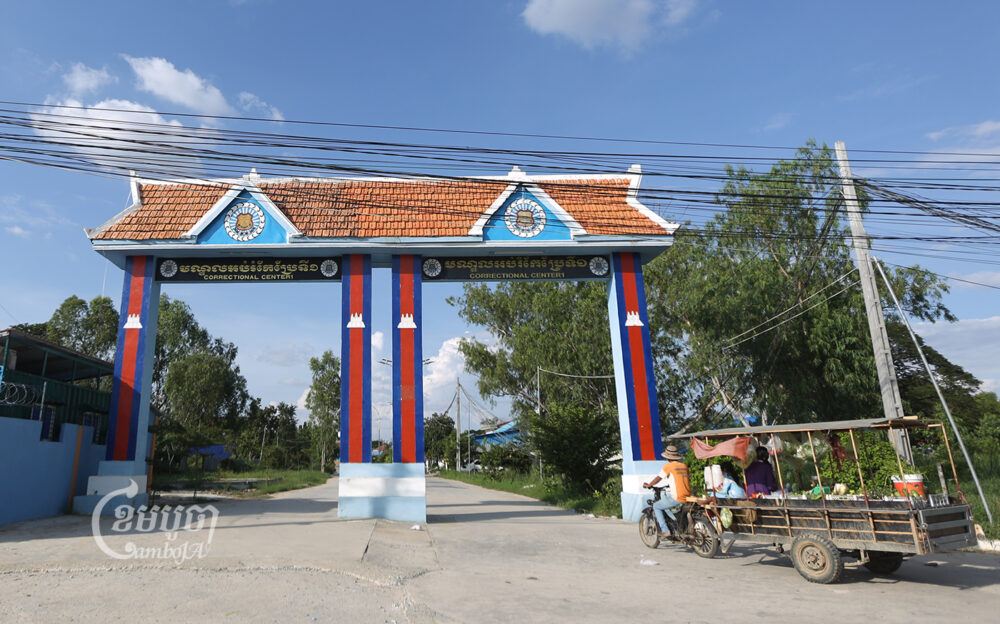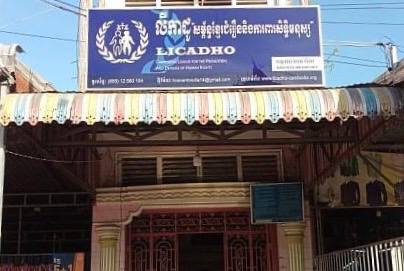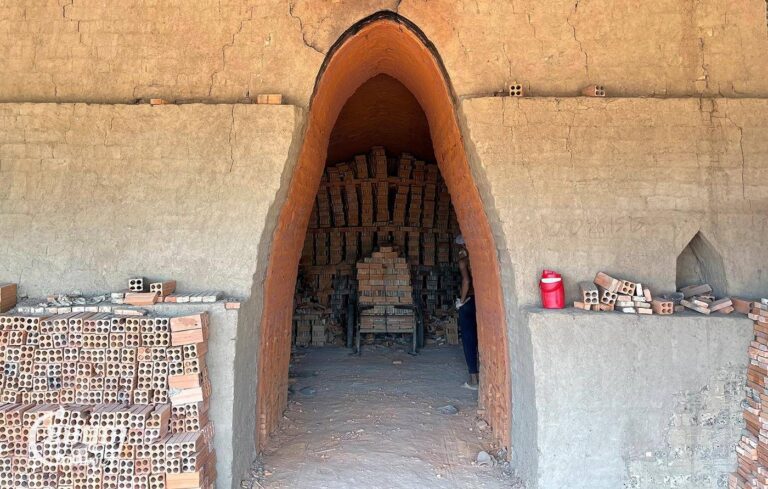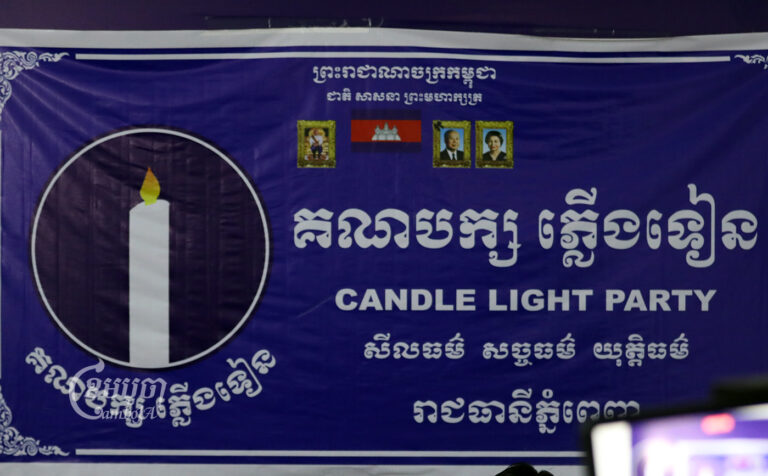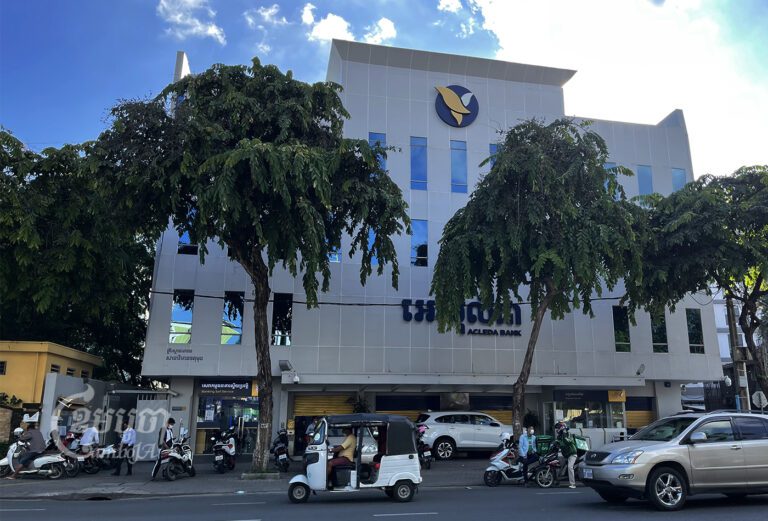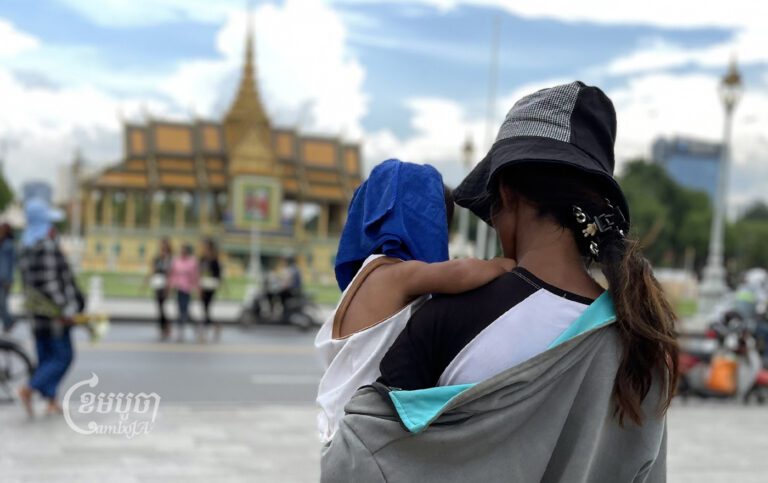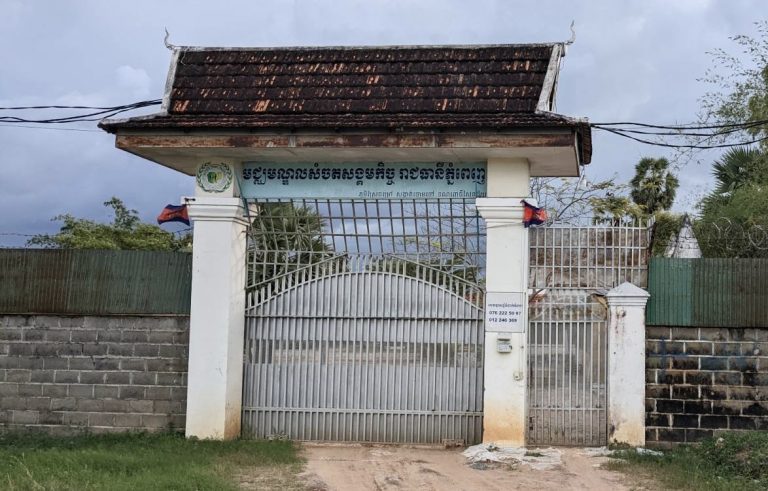A “soaring number” of minors are being detained in the majority of prisons at an “alarming rate,” human rights NGO Licadho reported in a Thursday statement published on international Children’s Day.
The number of inmates under 18-years-old has increased by more than 30% over the last year in 19 of 30 Cambodian prisons monitored by Licadho, the report found based on “information provided by prison administrations.” Many appear to have been placed in prison due to Cambodia’s ongoing drug crackdown, Licadho alleged.
In April, 1,658 minors were behind bars, almost all of them boys. Around half were in pre-trial detention, while 37% awaited final verdict, Licadho said. Of those minors, were 82 “young children” living in prisons and 30 pregnant women and girls.
Justice Ministry spokesperson Chin Malin said that the court has followed the law when implementing the procedures for pretrial detention.
“As we have recorded [minor] persons who have been detained in prison, there is no increase, it seems stable or declining,” he said, but did not provide alternative data to Licadho’s statistics.
Many prisons remain overcrowded with an average of 250% over their official capacity, Licadho reported.
The Interior Ministry’s General Department of Prisons spokesperson Nouth Savna said that the prisons simply receive the defendants sent by the courts.
“My place is just taking them for custody,” Savna said. “As for [imprisonment of minors] increasing, we don’t have the ability to do anything besides receive them. When they have sent [the accused person] to us, we will place them into prison.”
“The situation is not overcrowded like before, the detention of minors is better now,” he said, without providing statistics contrary to those cited in Licadho’s report. “We have not detained them with other inmates like before,” referring to incarcerating minors being placed in the same facility with adults.
However, Licadho reported that in some prisons minors remain incarcerated with adults.
To address children’s detention, the government built a facility called the Youth Rehabilitation Center in December 2021 in Kandal province to serve as the Kingdom’s primary juvenile detention center for children and young people up to 24 years of age. The center currently houses at least 130 convicted boys, according to Licadho.
Licadho claimed efforts to reduce overcrowding have “failed” and warned that housing children from all over the country in a single facility is difficult on family members, who “risk being unable to have contact with or provide essential support to their children.”
The rights group noted that legal representation is mandatory for minors facing criminal charges but “many children” have told Licadho they did not receive the opportunity to speak with a lawyer or apply for bail.
Phnom Penh Municipal Court spokesperson Y Rin could not be reached for comment.
Licadho called for all eligible minors, mothers and pregnant people to receive bail, to guarantee that every minor facing criminal charges has access to a lawyer and that prison conditions are improved to ensure access to healthcare and other basic needs.
Cambodian government strategic plans have called for reducing the incarceration of children.
“Modern thinking, recognized by the new code, is that punishing a child through the criminal justice process can actually increase the likelihood that the child will sink into self-identification with criminality and re-offend, with the likelihood of even more serious crimes,” stated the UNICEF-supported Juvenile Justice Law Strategic and Operational Plan 2018 to 2020.
“This is why it is necessary to intervene as soon as possible in order to prevent, rehabilitate and reintegrate those young people into society before they become criminals,” noted the 240-page report prepared by the Ministry of Justice and the Ministry of Social Affairs, Veteran and Youth Rehabilitation.
While the 2016 Law on Juvenile Justice states that community service, suspended sentences and conditional release can serve in place of prison time, Licadho said “these alternatives are underused.”
“According to Article 37b of the United Nations Convention on the Rights of the Child (UNCRC), the deprivation of liberty of children shall be used only as a measure of last resort and for the shortest appropriate period of time,” said UNICEF Cambodia representative Will Parks.
Parks noted that “progress has been made” in implementing the 2016 Juvenile Justice Law, especially in the diversion of children from prison, but implied that the incarceration rates of children in Cambodia remained an issue.
“UNICEF remains concerned by the number of minors being detained in Cambodian prisons,” Parks said. “Children should never be exposed to neglect, violence, abuse or exploitation, ill-treatment, or inhuman conditions of detention. Putting children behind bars risks causing severe damage to their health and development and can leave a lasting impact on their lives as well as on their families and society.”
He said UNICEF is “determined” to work with relevant authorities to “advance juvenile justice” and “actively encourage the effective implementation” of the Juvenile Justice Law.
The Justice Ministry told CamboJA that it rejected Licadho’s demands and said there were “a lot of measures and methods based on the laws” to deal with the problem but did not elaborate.
“Concerning security and public order, we can’t carry out what Licadho has called for to release detainees to reduce overcrowding,” Malin said.
Ministry of Social Affairs, Veteran and Youth Rehabilitation spokesperson Touch Channy also claimed that the issue of the reported increase in detained children was not his ministry’s fault.
“The detention of juvenile and young children is not our issue, my center [the Youth Rehabilitation Center] has just received [detainees] from prisons,” he said.
“We are only waiting to receive them when they have sent them,” Channy said. He said there are no overcrowded juveniles at the center in Kandal province, about no more than 100 detainees.
Licadho warned that “excessive” detention harms children and their families.
“We demand an end to this senseless approach of defaulting to detention—in violation of the rights of minors and the best interests of the child,” Licadho stated.
Noted: This story has been updated on June 4 to reflect comments received after publication UNICEF Cambodia.


